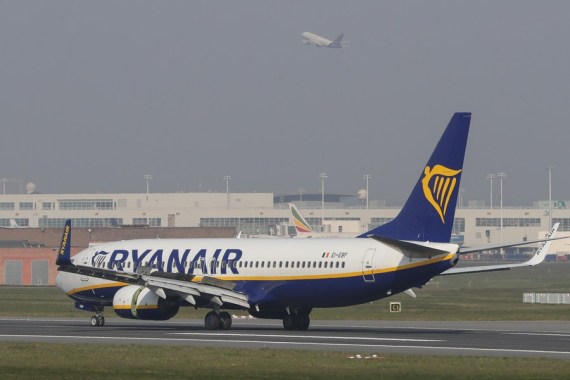Hungary fines Ryanair over raising ticket prices
Published : 09 Aug 2022, 03:05
Updated : 09 Aug 2022, 03:07
Hungary slammed a fine of 300 million forints (778,695 U.S. dollars) on the budget carrier Ryanair, which raised ticket prices to cope with the extra-profit tax imposed by the Hungarian government in June, reported Xinhua.
Justice Minister Judit Varga wrote on Facebook Monday that an investigation against Ryanair started in June and found "a violation of the law as the airline misled consumers through unfair business practices" that triggered 300 million forints of consumer protection fine.
Varga said the Hungarian government will "protect the Hungarian people" against the rising cost of living amid high inflation and the conflict in Ukraine.
In June, the Hungarian government imposed a total of 800 billion forints of windfall tax, dubbed "extra profit taxes", mostly on the financial and energy sectors, to curb inflation and finance rising defense costs.
Prime Minister Viktor Orban announced the creation of a new public utility cuts program and a new defense fund. Banks, insurance companies, large distribution chains, energy and trading companies, telecommunications service providers and airlines were obliged to give most of their extra profits to these funds.
The Irish airline Ryanair said on Monday that it had not yet received "any notification" and that it would "immediately appeal the baseless fine."
On Monday, the company stressed in a statement its privilege under European law to set its prices "without any interference from national governments or their consumer protection agencies."
If necessary, Ryanair will appeal to European courts, it said.
In June, Ryanair's CEO Michael O'Leary offered to give the Hungarian government an "Economics for Dummies" booklet, blaming it for an "idiot tax" that could lead to a "dramatic drop in air traffic in Hungary."
Ryanair argued that it was common knowledge that airlines in general were in very bad shape after the COVID-19 lockdowns worldwide, and were very far from making extraordinary benefits.


